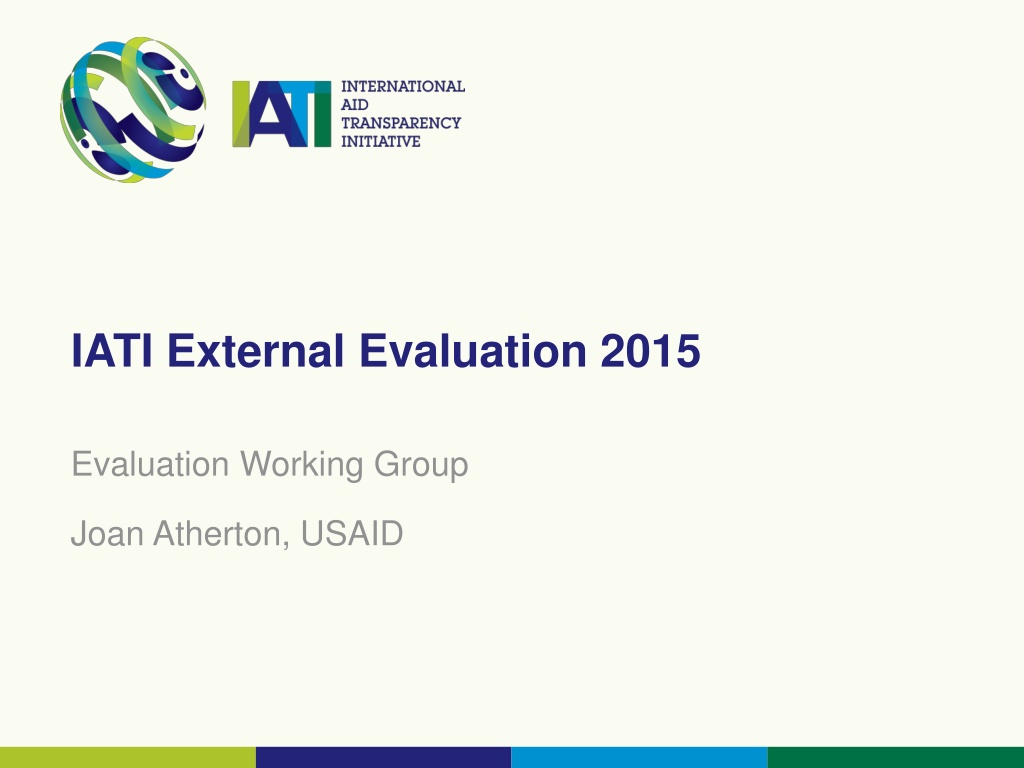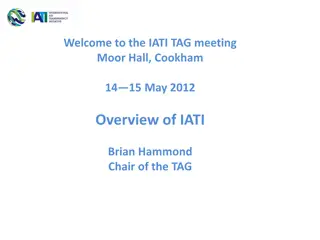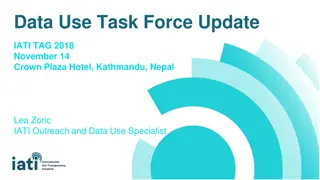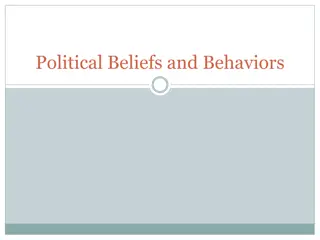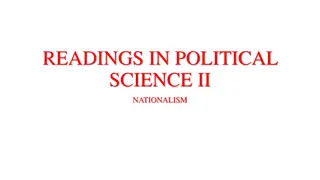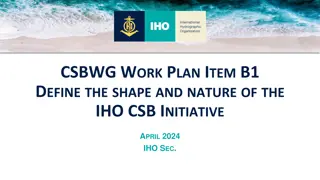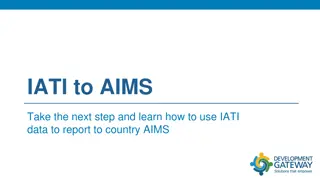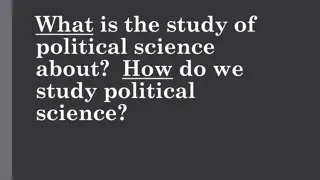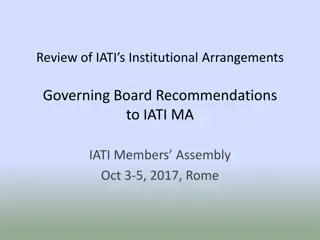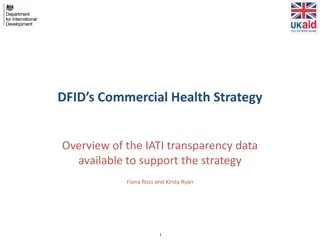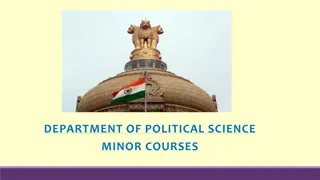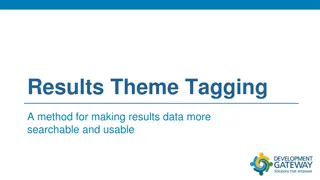Evaluation of IATI as a Political Initiative
Independent evaluation conducted on the success of IATI as a political initiative, focusing on transparency, technical standards, political profile, brand visibility, governance, membership, and funding. Process included surveys, interviews, reports shared with stakeholders, and feedback sessions. Key findings highlighted success in aid transparency but identified the need for a strategic vision, improved data accessibility, governance adjustments, and funding model enhancements.
Download Presentation

Please find below an Image/Link to download the presentation.
The content on the website is provided AS IS for your information and personal use only. It may not be sold, licensed, or shared on other websites without obtaining consent from the author.If you encounter any issues during the download, it is possible that the publisher has removed the file from their server.
You are allowed to download the files provided on this website for personal or commercial use, subject to the condition that they are used lawfully. All files are the property of their respective owners.
The content on the website is provided AS IS for your information and personal use only. It may not be sold, licensed, or shared on other websites without obtaining consent from the author.
E N D
Presentation Transcript
IATI External Evaluation 2015 Evaluation Working Group Joan Atherton, USAID
Overview & purpose of the session The independent evaluation was commissioned to gauge the success of IATI as a political initiative. Its Terms of Reference encompassed: IATI s role in bringing transparency to the global political agenda; Success as a global technical standard; Political profile, Brand visibility and accessibility, Governance, Membership, and Funding arrangements.
Process and methodology of evaluation Guided by the Evaluation Working Group. Terms of Reference developed by Secretariat guided by Evaluation Working Group Secretariat Survey March 2015 (56 respondents) Face to face and skype interviews June-August (38) Draft reports presented and shared with EWG and members (Aug) Workshop webinar led by Evaluator September(43 attendees) Final reports presented incorporating inputs from webinar (Oct)
Evaluation Findings & Follow-up Findings clustered in three areas were followed up at the Secretariat s request by the Members Advisory Group (MAG). It made recommendations for follow-up on three main areas of the evaluation and prepared papers to be discussed in subsequent sessions: Governance Strategic Vision Hosting
The MAG recommendations to be presented in subsequent sessions for the remainder of Day 1 do not address all of the issues raised in the evaluation, but provide the opportunity for launching dialogue around key topics. The findings and recommendations of the evaluators are their own and not officially endorsed by the EWG or the larger Steering Committee. We have accepted the evaluators reports after circulation to the membership for comment. We propose that discussion today focus on the feedback of members regarding the findings of the evaluation, concerns, or issues not included in the evaluation, understanding that the reports have been accepted.
Key Evaluation Findings IATI has been successful in putting aid transparency on the international agenda and has improved access to, and transparency of, aid data. IATI lacks a strategic vision for the medium- to long-term, from which its institutional arrangements will flow. IATI must continue to make data more accessible to, and hence used by, partner countries. Key aspects of IATI s governance and organisational management, as well as its funding model, should be addressed IATI is not sufficiently well known outside the circles it currently operates within, particularly within the countries it would benefit the most. There is a critical need to continue increasing the use of IATI data, particularly by partner countries.
